Of the many things we’ve lost since March, a regular routine is at the top of the list for many of us. As we say in my household, “Pandemic is the mother of invention,” meaning creativity and solution-finding are the responses of the resilient to situations outside of our control.
As we move into the next few months with many unanswered questions, you can help your teen find consistency and predictability through an established routine.
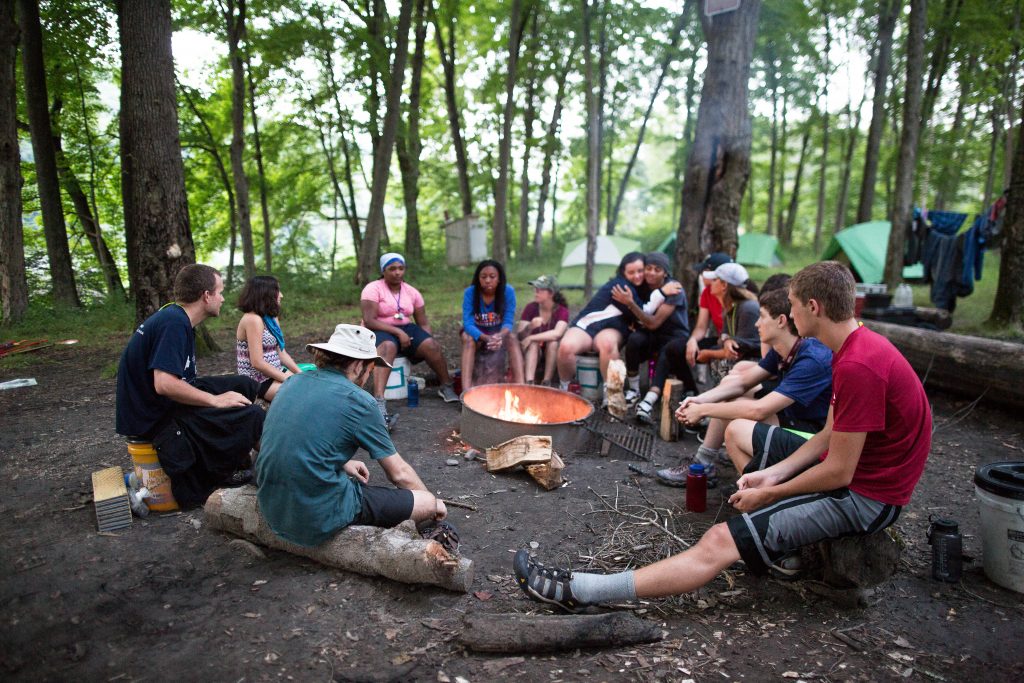
You can help your teen find consistency and predictability with an established routine.
On wilderness expeditions with teens, Instructors become experts at building routines because we have to. Gear is essential, and lost gear can range from a moderate inconvenience to significant safety hazards. Teenage brains, meanwhile, are undergoing lots of changes, and they’re not necessarily known for their excellence in keeping track of everything. Needed: routine for where to put things.
Similarly, their hyper-focus and distractibility can lead to meals happening a half-day late if left to their own devices. Needed: routine for meeting basic needs.
The same teenage brains also struggle to distinguish extreme heat from extreme cold, leading to shorts on a winter day and a black rain jacket with the hood up under the blazing sun. Needed: routine for self-care and decision-making.
The list could go on. Here are a few of my best pointers for establishing routines for your family’s expedition through the uncharted waters of the next few months.
1. Build a routine that’s resilient to changes in school and work schedules.
Shifting back and forth between remote settings and in-person settings will be a challenge. Help your teen come up with habits that apply in either situation. When we switch from backpacking to canoeing, we try to carry-over as many of the same words as possible, calling the things on your back and in the boat “packs,” rather than any specialized terminology that might not apply to another situation.
What are some words and habits from school that you can bring home?
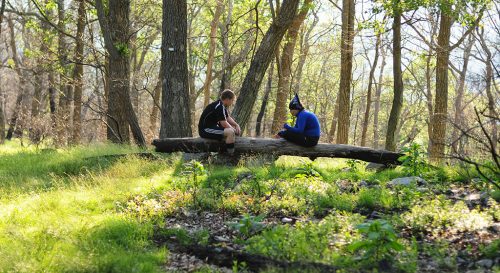
Help your teen come up with habits that apply to various situations. Photo by Michael DePrima.
2. Write down your routine!
Teens want independence and autonomy, yet they’re bound to forget the details needed for success. If they can answer their own questions by referring to a checklist, schedule or plan, that’s a win for everyone. Having a picture of what “ready” looks like, for example, could be more useful than a long list of words. In the wilderness, we print and laminate our lists ahead of time, and then make changes as needed during the trip.
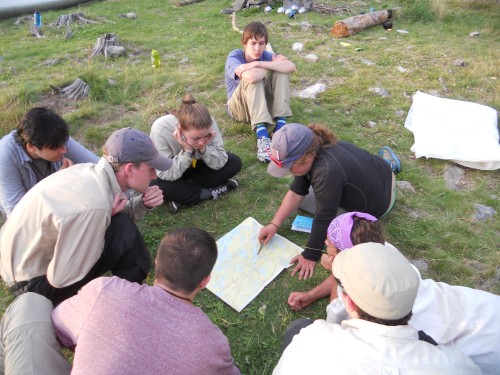
If teens can answer their own questions by referring to a checklist, schedule or plan, it will help set them up for success.
3. Figure out what free time is and is not.
Free time is necessary and isn’t the same as choosing from a list of options. Free time can be used as leverage to get other things to happen, but if free time never happens, that becomes a problem.
Are screens allowed during free time? Some aspects of our lives have become much more stressful, and we’ve lost some of our coping mechanisms. Your teen needs free time to relax and unwind but also needs some guidance from you to make good choices.
The list of chores around camp can feel unending to all of us, from gathering the firewood needed to cook dinner to tent zipper repairs that we keep putting off. We learn the lesson over and over again that taking the time to swim or play a game or just lounge will result in greater productivity afterward, rather than simply lost time to do those chores. The work gets done.
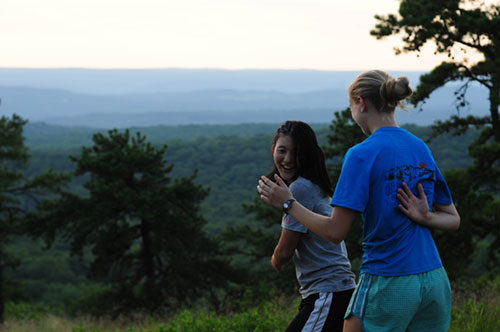
Free time can be used as leverage to get other things to happen, but if free time never happens, that becomes a problem.
4. Schedule meal times, outdoor time/exercise, quiet time/bedtime, and do it as a family.
Role modeling is a powerful way to convince the reluctant, and setting double standards is a powerful way to undermine yourself. Early in an expedition, Instructors role model desired behaviors to create buy-in. The now-ubiquitous phrase, “We’re all in this together,” comes to mind. Later on, after trust has been established, we can leverage some rapport to deviate from our students’ routines.
The best way to empathize and understand what our students are feeling is to eat when they do, sleep when they do and work when they do. If we’re hungry, we know they’re starving. If we’re tired, they must be exhausted. Sneaking snacks or catnaps can result in an inaccurate gauge of how the team is doing.
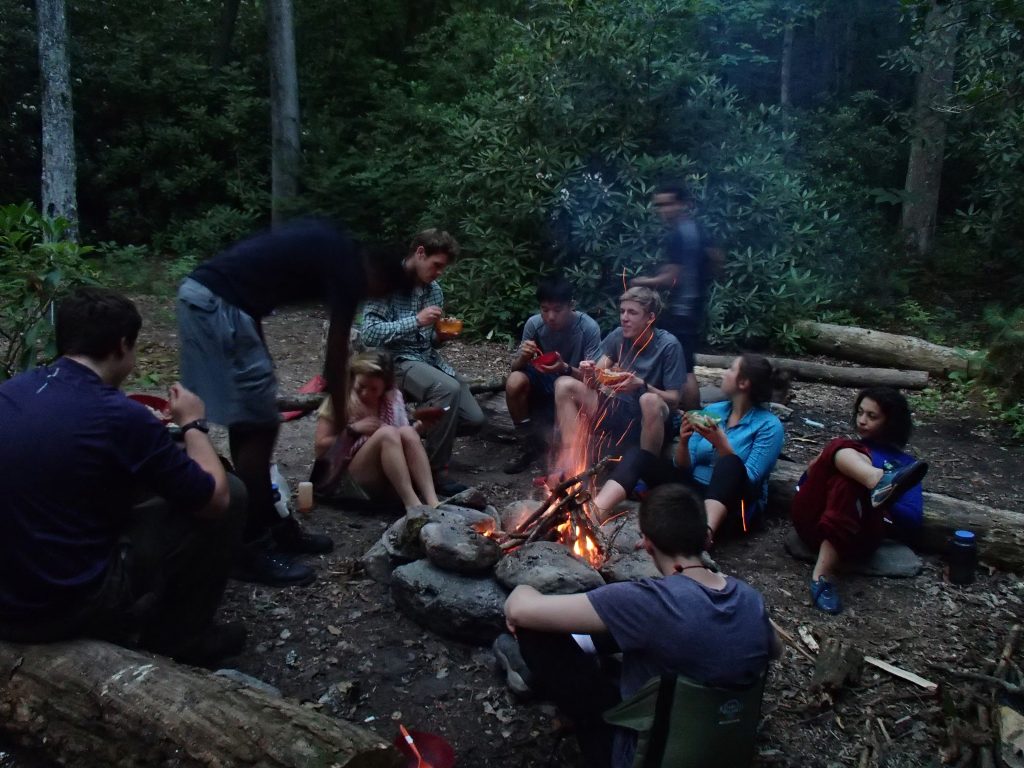
Role modeling is a powerful way to convince the reluctant. Model the behaviors you want to see in your teen.
5. Stick to it. Routines take time to sink in and become a habit.
The pay-offs of developing a routine will be felt in time. Consistency and predictability help lower stress levels and anxiety while making sure that what needs to get done gets done. Just as on an expedition, having a routine leaves us more energy for the important things. We go to bed knowing all our stuff won’t blow away in a storm while we sleep.
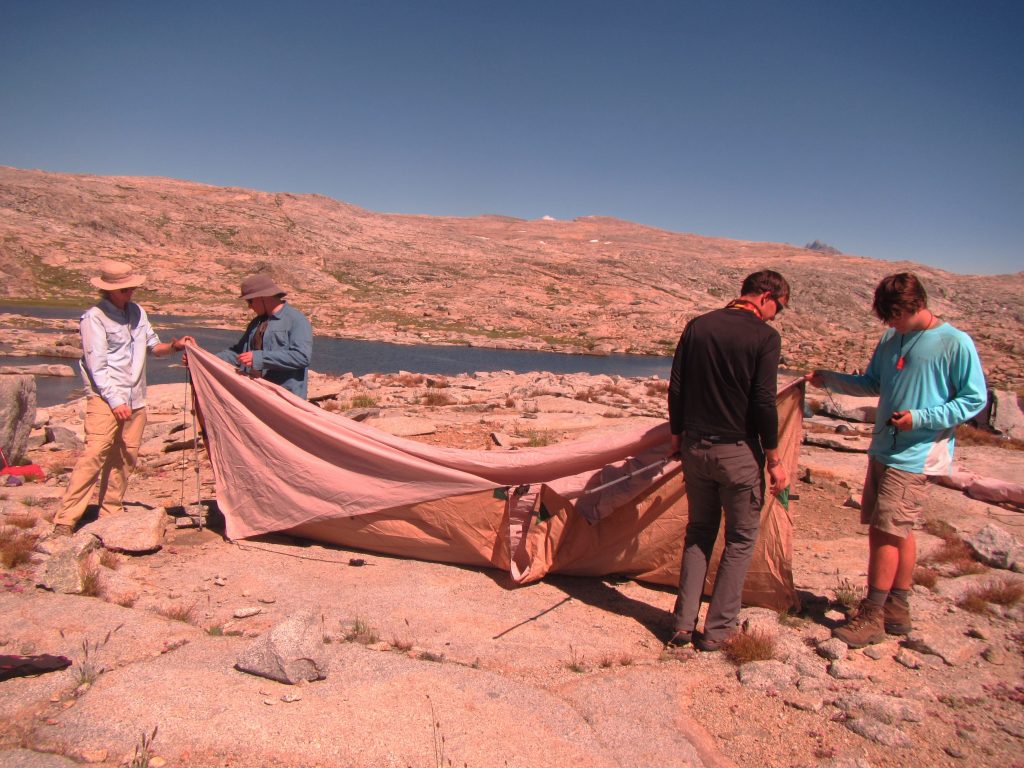
Students set up their tarps to sleep under at their campsite after a day of hiking.
That’s all well and good, but what if your teen doesn’t want anything to do with your healthy routine?
Decide which pieces are most important to you and focus on those. Brainstorm together, and find out what helps your child feel empowered and nourished. Explain the reasoning behind the rules, and establish incentives and consequences where needed. In the wilderness, we have the advantage of being the sources of knowledge related to general survival and how to get home, but we also win teens over with pizza and chocolate cake.
What are your tips and tricks for building—and sticking to—a healthy routine during the pandemic?
About the Author
Renee Igo was an Outward Bound student at age 15, and has been instructing wilderness expeditions for the Voyageur Outward Bound School for the past eight years. When not instructing, she holds a variety of other teaching positions and raises sheep in Maine.




